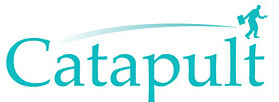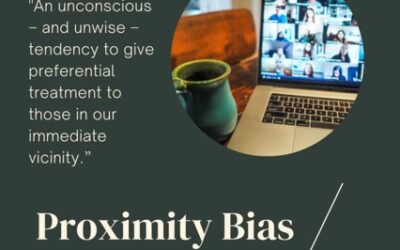News, Updates, & Resources
Proactive Ethics: Using Hartman’s Dimensions to Prevent Scandals
Article 4 of 7-part thought leadership series: Protecting and Sustaining Your Organisation Through Ethical Decision-Making As we advance in our 7-part series, the fourth article pivots towards a proactive stance on ethics. We explore how implementing Robert S....
Beyond Surveys and Interviews: Unveiling the True Causes of Organisational Scandals
Article 3 of 7-part thought leadership series: Protecting and Sustaining Your Organisation Through Ethical Decision-Making Investigating organisational scandals often utilizes methods like culture surveys and interviews, but do these tools capture the full picture? In...
Scandal Spotlight: Diagnosing Ethical Breakdowns in Organisations
2 of 7-part thought leadership series: Protecting and Sustaining Your Organisation Through Ethical Decision-Making In the complex tapestry of organisational ethics, scandals stand out as stark reminders of what happens when ethical decision-making breaks down. In this...
Navigating the Ethical Compass: The Foundation of Organisational Integrity
1 of 7-part thought leadership series: Protecting and Sustaining Your Organisation Through Ethical Decision-Making In the contemporary business environment, characterized by rapid change and intense scrutiny, the importance of ethical decision-making cannot be...
Proximity Bias – Is your Talent Out of Sight, Out of Mind?
Have you heard of proximity bias? It’s a by-product of Remote working. What is proximity bias? The BBC describes it as “an unconscious – and unwise – tendency to give preferential treatment to those in our immediate vicinity.” This is problematic. Hybrid or remote...
CatapultCulture – The Maslow Connection – Enabling all of your people’s Hierarchy of Needs
Culture Eats Strategy for Breakfast’ The data is compelling: companies with healthy cultures have three times greater total returns to shareholders. A recent Mckinsey study found that in times of volatility, organisations that focus on culture and organisational...
Thinking, Filtering & Decision-Making is the Talent Currency for the new Norm
How many decisions do you make in Day? It's estimated that the average adult makes about 35,000 conscious decisions each day. That's a lot - considering that there are 61,200 seconds each day (assuming that you are asleep for 7...
Business facing COVID-19 Lock Down? Free tools to help unexpected Virtual Leaders Build Trust & Innovate
COVID-19 is about to change the working environment for thousands of people. As offices go on lockdown - people will have to work from home. In some cases, organisations will have to switch to virtual working overnight. In this article, I share some practical tools to...
Coaching entrepreneurial teams to solve the Innovation Crisis – a free diagnostic tool
Desperately Seeking Innovation According to a recent McKinsey survey, 94% of executives are dissatisfied with their firms’ innovation performance. Having worked for 25 years in global corporates - including a 7-year stint in R&D - my view of innovation has...
Good Culture and Talent Enabling Services
Books & Publications
Beyond articles see our papers co-authored with Cambridge University and an article written by a client and published in their industry publication.
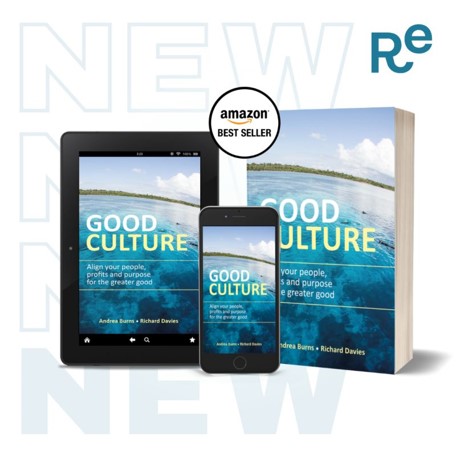
Good Culture – Out now on Amazon! Out now on Waterstones! Out now on Barnes and Noble!
Andrea Burns, Richard Davies. (2022)
First published in Great Britain in 2022 by Rethink Press (www.rethinkpress.com)
Good Culture: Align your people, profits and purpose for the greater good
In a world of uncertainty and unprecedented change, your company culture is key to helping your business survive and your people thrive – no matter their location – office, home or beach.
Good culture is why people buy from you, supply, invest in, join, perform for and stay with you. Underpinned by the rigour of three disciplines; Moral Philosophy, Psychology and the Science of Value, the 9 Performance Pathways described in this book enable any business to create a good culture supported by the right values, risks and people.
Read this book and enable your business to:
- Survive and flourish by aligning your culture with the shifting needs of all stakeholders in a volatile hybrid world
- Reduce staff turnover (and costs), improve self-esteem, and avoid the “great resignation” by creating a good culture where people want to stay
- Build reputation and reduce risk by understanding the Why, What and How of ethical decision making
- Increase thinking agility by harnessing diversity to meet the demands of our ever-turbulent world
- Create a culture that will increase trust, get the best out of your people, improve innovation, and create better outcomes for the greater good
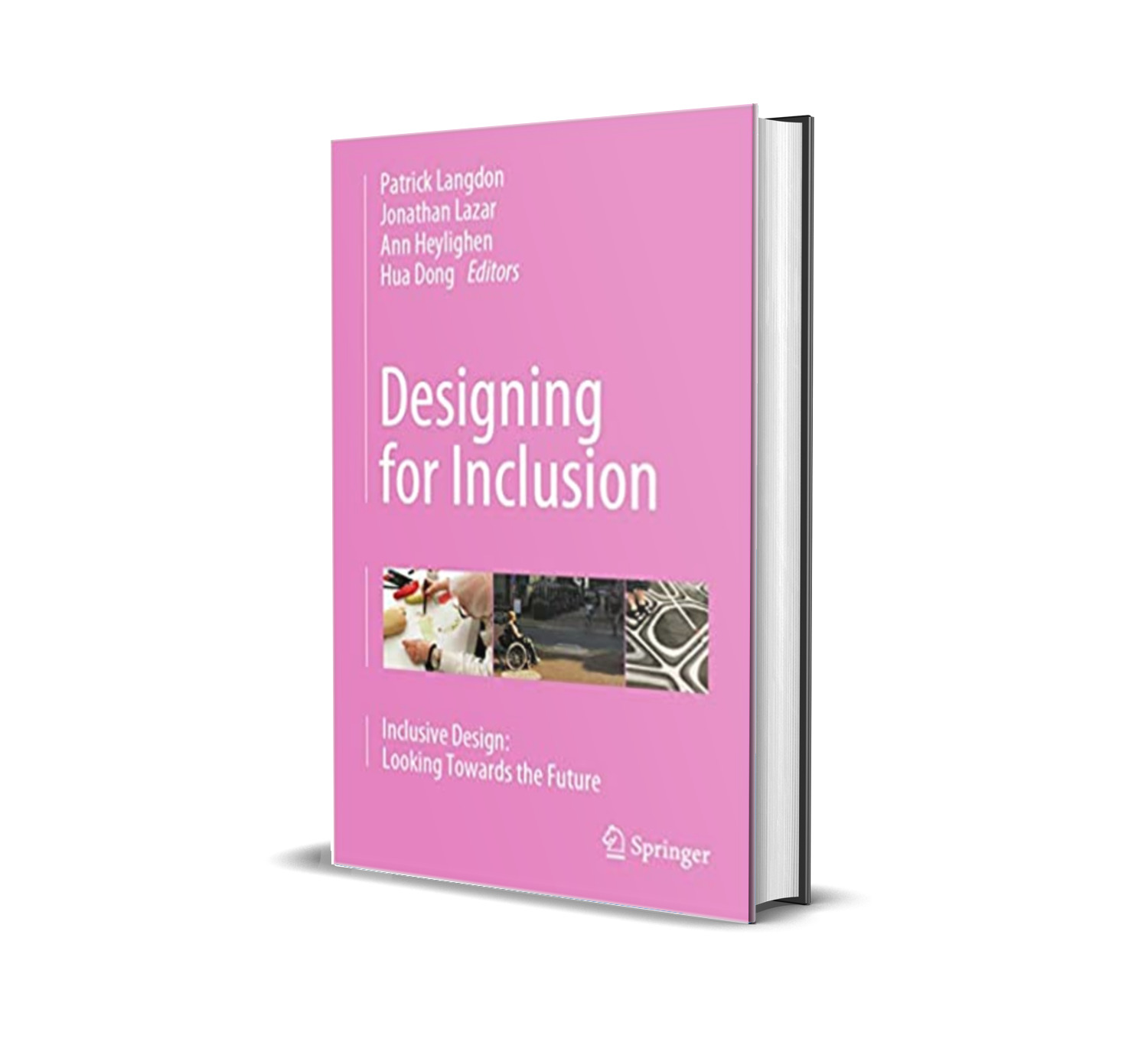
Thinking Diversity
Burns A., Davies R., Langdon P.M. (2020) Thinking Bias: The Hidden Talent Excluder. In: Langdon P., Lazar J., Heylighen A., Dong H. (eds) Designing for Inclusion. CWUAAT 2020. Springer, Cham. https://doi.org/10.1007/978-3-030-43865-4_17
Thinking Bias: The Hidden Talent Excluder
Large numbers of organisations use interviews and psychometric tests as methods of recruiting new employees. The inherent biases of these approaches are examined here for a number of common scenarios and the implications for inclusivity explored. Axiology or Value Science has been proposed as a philosophy and approach that analyses and leverages the concept of value judgement and provides practical methods by which it can be deployed to reduce organisational bias and increase inclusion via identifying, leveraging and raising the levels of cognitive diversity within organisations. In particular, the methods of Axiometrics are examined and contrasted with those of psychometrics; along with a detailed look at its validation in practice. It concludes that Axiometrics is superior to personality and behavioural based psychometrics in fostering diversity and therefore effectiveness in organisations by increasing understanding of people capability.
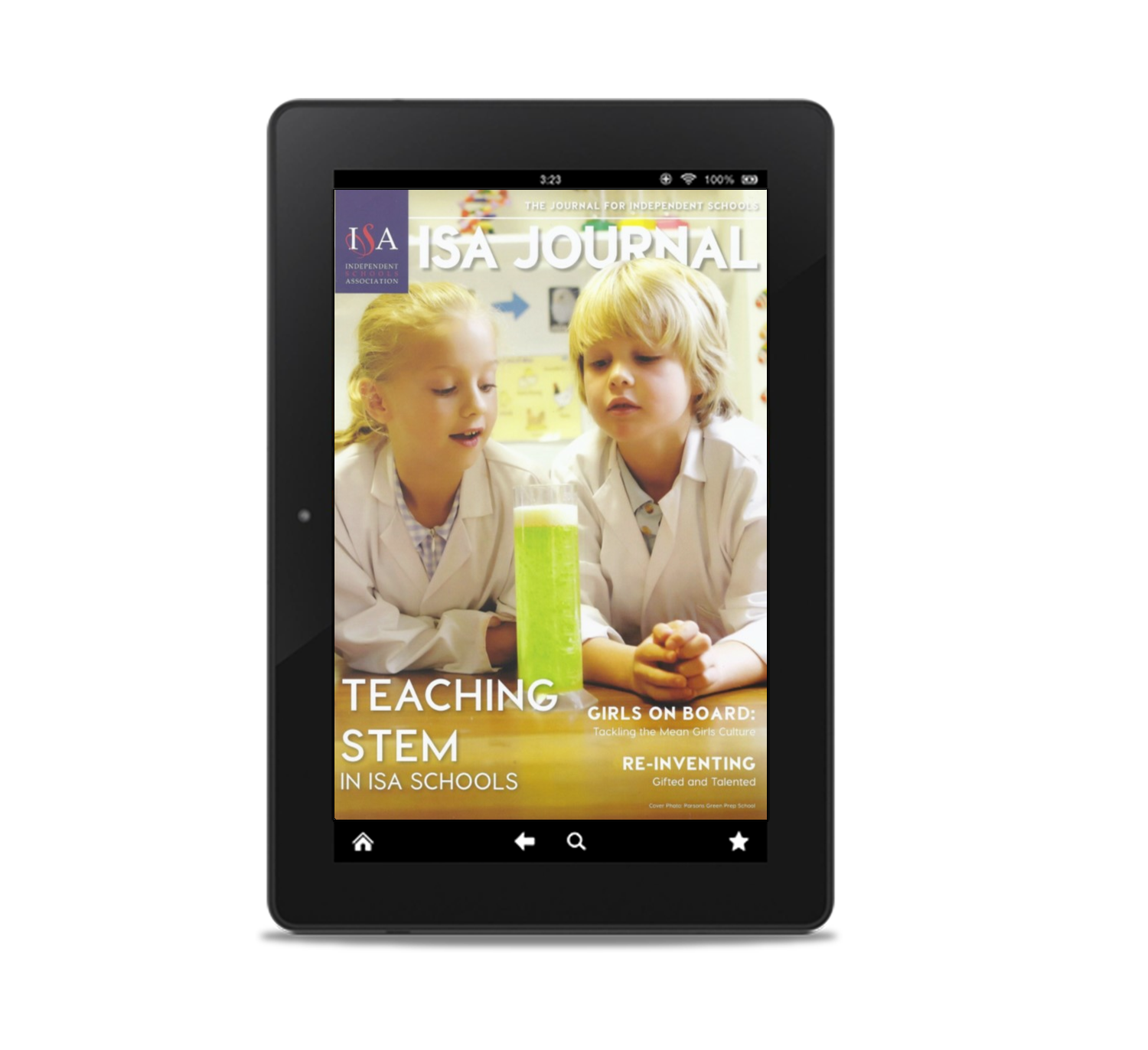
Leadership – Schools
ISA Journal November 2016 Issue 14
Leadership Challenge- Building an Effective SMT
David Brazier, Head Teacher of St James Senior Boys’ School in Surrey, shares his thoughts on building an effective SMT
Contact
Phone
propel@catapult-solutions.co.uk
Address
17 The Meadows, Gillingham, Dorset. SP8 4SP
